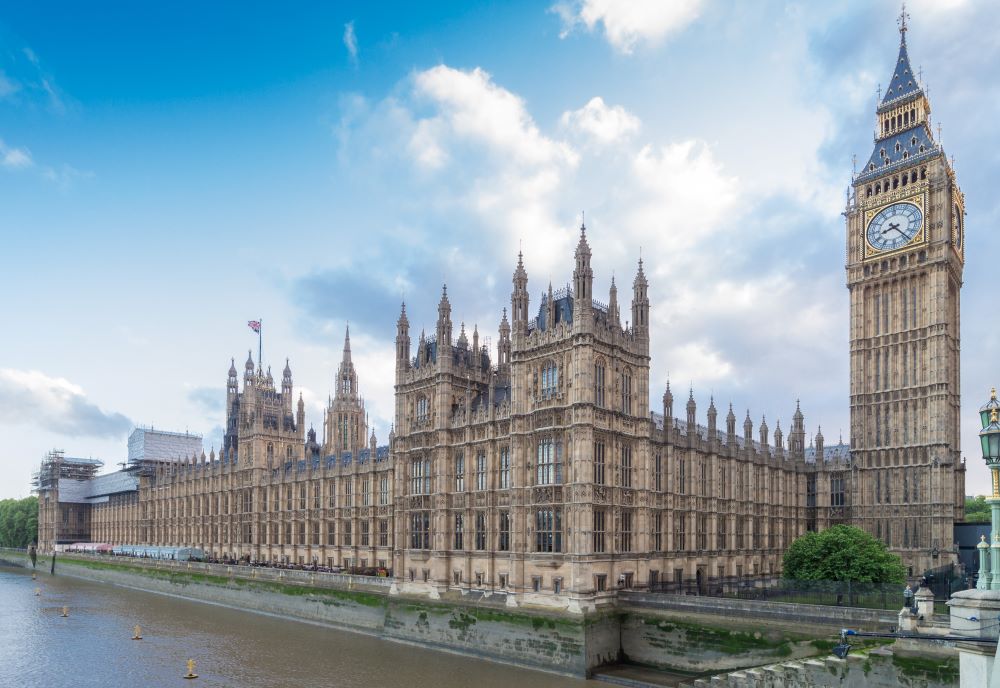
In the latest parliamentary round-up, the Institute of Export & International Trade's public affairs adviser Grace Thompson gives the latest updates on the 'Brexit bonfire' bill as well as the government's response to questions on the Northern Ireland Protocol and trade policy.
The Retained EU Law bill
On Monday (6 February), the Retained EU Law (Revocation and Reform) Bill had its second reading in the House of Lords.
Conservative peer Lord Callanan (previously parliamentary under secretary of state at the Department for Business, Energy and Industrial Strategy, now in the Department for Energy Security and Net Zero) led the debate from the government side.
He said that the bill will enable the government to develop a new pro-growth, high-standards regulatory framework that will give business the confidence to innovate, invest, scale-up and create more jobs.
Baroness Chapman, speaking for the opposition, cited industry disquiet regarding the bill. For example, she noted the CBI’s perspective that the government is subjecting “the public – and industry – to another round of mass confusion and disruption, just when we’re trying to exit recession”.
She highlighted that the FSB has also requested the removal of sunset provisions, while the TUC has called the bill a “recipe for chaos”.
Lord Callanan said the bill is the next step in reasserting sovereignty of Parliament and untangling the UK from nearly 50 years of EU membership. He added that the time is right to review retained EU law and end it as a special legal category.
He made the point that, now the UK has left the EU and regained its sovereignty, it is important to ensure the UK has a regulatory system designed to benefit UK consumers and businesses.
Baroness Chapman said the government had previously said the point of the European Union (Withdrawal) Bill, was to “avoid significant and serious gaps in our statute book which ensured that EU-derived law was incorporated into UK law” but this new Bill does the exact opposite.
She concluded that the Bill “fundamentally simplistic and inaccurate view of what regulation is and who it is for.”
Concluding for the government, Lord Callanan argued the bill would improve UK legislation in several areas, including the UK’s scrutiny role, the UK statute book, environmental outcomes for the country and the UK’s regulatory system.
Oral questions to Northern Ireland secretary
On Wednesday there were oral questions to the secretary of state for Northern Ireland, Chris Heaton Harris MP. The secretary of state emphasised there is no truth to rumours that the Northern Ireland Protocol deal is finished and “waiting with the PM”.
Sheryll Murray MP asked what steps the government is taking to help businesses in Northern Ireland trade with the rest of the UK. Heaton-Harris said that the government is committed to ensuring “unfettered access” for Northern Irish businesses to the rest of the UK market.
In response to a question from Labour MP Jeff Smith and Dame Nia Griffith MP, about recent discussions Heaton-Harris has had with Cabinet colleagues on negotiations on the Northern Ireland Protocol, Heaton-Harris responded he frequent has discussions with colleagues about NI matters adding that claims the negotiations have finished and a deal is with the PM are false.
There is no agreement yet, and Heaton-Harris refused to comment on when the UK could have one.
Oral questions to the business and trade secretary
Due to commitments in Mexico, Kemi Badenoch MP missed her first session of oral questions in her new role as secretary of state for the new department of business and trade. In her absence her questions were taken by ministers.
Greg Smith MP asked about discussions with the US on reducing market barriers at state level. The minister of state, Nigel Huddleston MP said that MOUs had been signed with various states, who had imported over £3.3bn of UK goods in 2021 in areas including renewable energy and life sciences. The government working on deals with California, Utah, Oklahoma and Texas, as they seek to improve the UK’s trade relationship with the US, which is its largest bilateral trading partner.
Smith also asked for an update on the digital trade situation in the US relationship. Huddleston said the department has identified digital trade a key area of bilateral cooperation for future talks.
Mark Eastwood MP asked what steps the department is taking to increase export opportunities for small and medium sized businesses. Minister of state, Nusrat Ghani MP, said UK exports grew by 24% year-on-year and pointed to the department’s 12-point strategy, which will see UK exporters extensively supported in the future.
A flying visit
As to this week’s highlight for many parliamentarians, it was no doubt the rousing and historic speech from Ukraine’s president Volodymyr Zelensky.
That it took place in the magnificent setting of Westminster Hall helped give the occasion even more impact, as did the non-too-subtle gifting of an Ukranian fighter pilot’s helmet to the Speaker of the House of Commons. On the helmet was written the message "We have freedom, give us wings to protect it”.
IOE&IT is holding a free webinar to examine the impact of Russia’s invasion of Ukraine one year on on Tuesday 14 February at 2.30pm. Click here to sign-up.



